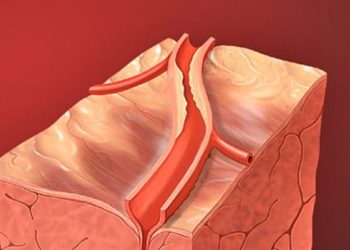#VisualAbstract: Cabotegravir plus rilpivirine given every 8 weeks is non-inferior to every 4 weeks for maintenance of HIV-1 viral suppression
1. At week 48, there was a similar proportion of participants with plasma HIV-1 RNA ≥ 50 copies per mL between the 8-week and 4-week dosing groups.
2. The safety profile was similar between both dosing groups with no treatment-related deaths.
Evidence Rating Level: 1 (Excellent)
Study Rundown: Current medications for HIV care require high levels of adherence which may result in treatment fatigue. Consequently, anti-retroviral therapies (ARTs) with less frequent dosing regimen are desired among patients. This multicenter, open-label, randomized controlled trial aimed to compare the week 48 virological efficacy and safety of long-acting cabotegravir plus rilpivirine treatment dosed every 8 weeks versus every 4 weeks for the maintenance of HIV-1 viral suppression. Primary outcome for this study was the proportion of participants with plasma HIV-1 RNA ≥ 50 copies per mL at week 48, while secondary outcomes included the proportion of participants with plasma HIV-1 RNA ≤ 50 copies per mL, confirmed virological failure (CVF), and changes from baseline to week 48 in plasma HIV-1 RNA and CD4+ count. According to study results, cabotegravir plus rilpivirine long-acting every 8 weeks was non-inferior to dosing every 4 weeks as per the primary outcome. Furthermore, the safety profile between dosing groups was similar and no treatment-related deaths occurred. This study was limited by a lack of longitudinal follow-up. Given the issue of treatment fatigue and adherence, it would be interesting to see how patients in both dosing groups fared at the two-year mark with regard to overall health status, viral suppression, and long-term complications. Nevertheless, this study is the first to evaluate an HIV-1 RNA treatment that consists of an injectable long-acting ART regimen with dosing every 8 weeks.
Click to read the study in The Lancet
Relevant Reading: Long-Acting Cabotegravir and Rilpivirine for Maintenance of HIV-1 Suppression
In-depth [randomized controlled trial]: Between Oct 27, 2017, and May 31, 2018, 1149 individuals were screened for eligibility from 13 countries. Included patients were those older than 18 who received an uninterrupted first or second oral standard-of-care regimen for at least 6 months without virological failure, did not have known ART resistance-associated mutations, and completed a screening plasma HIV-1 RNA ≤ 50 copies per mL in the previous year. Altogether, 1049 patients were enrolled in the study and 1045 (522 in the 8 weeks dosing group and 523 in the 4 weeks dosing group) were included in the analysis.
Among included patients, the median age was 42 years (interquartile range [IQR] 34-50). The majority (73%) of participants were male at birth, with a median CD4+ count of 661 cells per μL (IQR 508-849). Primary outcome of plasma HIV-1 RNA ≥50 copies per mL at week 48 was observed among nine (2%) patients in the 8 weeks dosing group and five (1%) in the 4 weeks dosing group, with an adjusted treatment difference of 0.8 (95% confidence interval [CI] -0.6-2.2). The secondary outcome of plasma HIV-1 RNA <50 copies per mL at week 48 was met in 492 (94%) of 522 patients in the 8 weeks dosing group and 489 (93%) of 523 patients in the 4 weeks dosing group, with an adjusted treatment difference of 0.8 (95% CI -2.1-3.7). A greater proportion of patients in the 8 weeks dosing group (n=8, 2%) had CVF (two sequential measures ≥ 200 copies per mL) than in the 4 weeks dosing group (n=2, < 1%). Similarly, the median change from baseline to week 48 in CD4+ count was greater in the 8 weeks dosing group (5.0, IQR -74.0-91.0) than in the 4 weeks dosing group (-8.0, IQR -114.0-62.0). The safety profile for cabotegravir plus rilpivirine was similar between dosing groups, with 844 (81%) of 1045 participants having adverse events but no treatment-related deaths. Additionally, survey results from patients in the 8 week group report that the 8 week regimen was highly preferred over the more frequent 4-week regimen. Overall, findings from this study suggest that cabotegravir plus rilpivirine long-acting given every 8 weeks is as effective and well-tolerated as every 4 weeks dosing for maintaining HIV-1 viral suppression.
©2020 2 Minute Medicine, Inc. All rights reserved. No works may be reproduced without expressed written consent from 2 Minute Medicine, Inc. Inquire about licensing here. No article should be construed as medical advice and is not intended as such by the authors or by 2 Minute Medicine, Inc.







